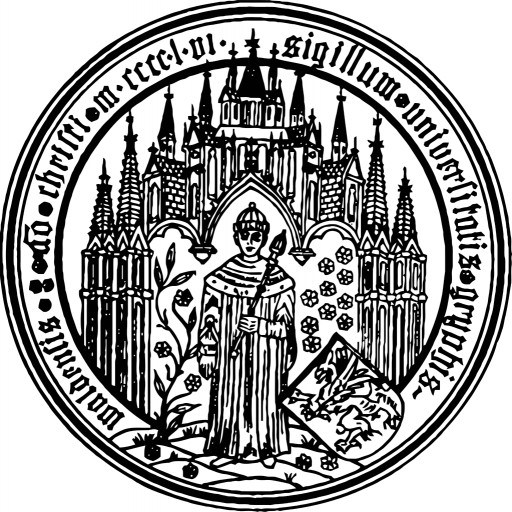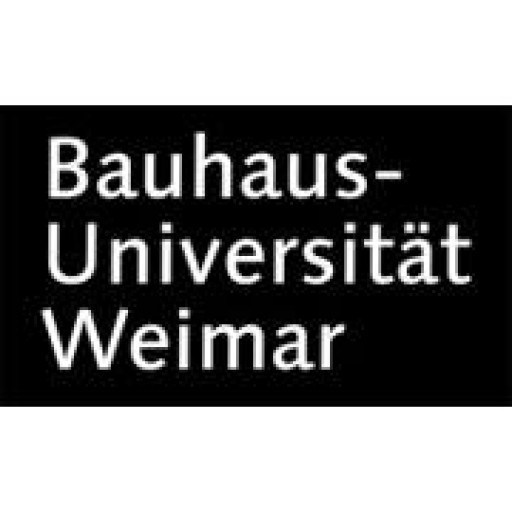Photos of university / #unigoettingen
The Bachelor of Science in Hydrogeology and Environmental Geoscience at the University of Göttingen offers students a comprehensive education in the scientific principles governing the Earth's systems, with a focus on water resources, groundwater management, and environmental protection. This interdisciplinary programme combines theoretical fundamentals with practical applications, preparing graduates for careers in environmental consulting, water resource management, and research institutions. Throughout the course, students engage with subjects such as geology, hydrology, geochemistry, and environmental sciences, gaining a deep understanding of the processes that shape our planet and influence water quality and sustainability. The programme emphasizes fieldwork, laboratory analysis, and data interpretation, enabling students to develop essential skills in sampling techniques, environmental monitoring, and GIS applications. Collaboration with local and international research projects provides students with valuable real-world experience and exposure to current challenges in hydrogeology and environmental protection. Graduates of this programme are equipped to address complex environmental issues, contribute to sustainable water resource management, and pursue advanced degrees or careers in academia, governmental agencies, or environmental consulting firms. With a strong emphasis on scientific rigor, analytical thinking, and practical skills, the Hydrogeology and Environmental Geoscience programme at Göttingen prepares students to become responsible stewards of Earth's resources and innovative problem solvers in the field of environmental sciences.
Educational organisation
Euroculture in Göttingen comprises four semesters with eleven affiliated universities who cooperate within the Euroculture consortium. Students will spend the first semester in Göttingen (the "home" university) and the second semester at another European partner university (the "host" university). At the end of the second semester, all students and staff members come together for a ten-day intensive programme to present and discuss independent research projects. During the third semester, students either pursue an internship (professional track) or attend additional courses (research track). The internship can be done at various institutions and organisations. The research track can be followed at one of the eight European universities, or in the case of European students, at one of the four non-European partner universities of the consortium. In the fourth semester, the students return either to their home or their host university.Study abroad unit(s)
The second Euroculture semester must be spent at one of the Euroculture partner universities. The third semester (research track) can be spent either at a European partner university or, in the case of European students, at a non-European partner university. Alternatively, students can do an internship during the third semester at an organisation or institution relevant to Euroculture (professional track).Internships
Students may choose to do a 18-24 week internship or professional track during the third semester. Due to the transdisciplinary nature of the Euroculture programme, students tend to have varying interests and therefore undertake internships in many different sectors. On our website, you will be provided with a sample list of places where Euroculture students have completed their internships. Depending on the particular emphasis of their studies, students choose either to do an internship or to participate in the research track during the third semester. The research track is offered by the University of Göttingen or the European partner universities (open to all students) as well as by international partner universities in India, Japan, Mexico and the United States (this track is open to our EU students only).Forms of assessment
A variety of tasks and assessments is used, including papers, presentations, independent research tasks and group projects. Results will be given in the local grading systems of the universities and converted into ECTS. Students are required to earn 30 ECTS credits per semester, which is the equivalent of a study workload of 900 hours per semester.Course objectives
The Master's programme meets the changing standards of the European job market. It opens up the possibility to prepare for occupational areas which evolve from the intensifying economic and political process of integration. Euroculture provides those wishing to work in a European or international field after completing their studies with ideal qualifications for this area of work. The programme qualifies students for fields of work in which political, historical, intercultural knowledge is necessary.Because of the ongoing process of European unification, there is a growing need for graduates from universities who stand out due to oral fluency, intercultural competence and interdisciplinary know-how. The Euroculture programme supports and provides these key qualifications by offering an interdisciplinary and international education.
Euroculture graduates are qualified to look for employment in the following areas/organisations:
- European institutions, non-government organisations and non-profit groups
- national and international institutions/organisations and projects
- embassies all over the world
- immigration
- institutions of education, research and further education
- media, journalism, publishing and libraries
- political parties, foundations and associations
- design of cities and regions, local and regional cultural institutions
- cultural management, event management
- museums and exhibition organisations
- religious institutes
- tourism
- guidance for migrants and foreigners
- public relations, legal departments and human resources management in international companies
Language requirements
If your mother tongue is not English, proof of English skills must be provided:- TOEFL paper-based 580 or TOEFL Internet-based 92
- IELTS minimum overall score 6.5, with no part score (listening, reading, writing, speaking) under 5.5
- CAE Cambridge Certificate in Advanced English: C1 or Cambridge Proficiency in English: C1
Academic requirements
Candidates must have completed a first-cycle degree (academic BA/BSc degree) with a good grade in a discipline of relevance to Euroculture, e.g. in the Arts, Humanities or Social Sciences, such as: European Studies, History, Theology, Linguistics, Philology, Literature, Philosophy, International Relations, Political Science, Law, Economics, Cultural Studies, Anthropology, Psychology or Sociology, or in another study course relevant to the Euroculture programme (please contact us if you are interested in studying Euroculture but are not sure whether your educational background is relevant).The following criteria will be taken into consideration:
- academic excellence: overall mark and quality of first degree
- academic potential, based on the time spent on obtaining the first degree and the manner of conducting studies
- motivation to study the Euroculture programme (including the applicant's expectations)
- language abilities
- work experience in related fields
- experience of having worked or studied abroad
- personal competencies and extracurricular activities relevant for successful participation in the Euroculture programme, such as the ability to work and learn in an interdisciplinary environment, to carry a heavy workload and to participate in group work
- academic and, if possible, professional references
For details, please refer to http://www.uni-goettingen.de/de/31861.html
Enrolment fees
Enrolment fees are included in the overall fee which has to be paid to the Euroculture consortium administration office. In Göttingen, enrolment fees include a semester ticket covering public transport in Lower Saxony and other parts of Germany. They also include access to subsidised university canteens and various other services, such as discounted tickets to cinemas, theatres, etc.Costs of living
The average cost of living in Göttingen is modest compared to other major university cities in Germany. Currently, expenses for accommodation, food, health insurance and books reach approx. 650-700 EUR per month. Please note that fees for health insurance may vary according to age. Living expenses might be slightly higher.Job opportunities
The university supports students in finding part-time jobs in local industries and businesses. A number of student jobs are also available at the university. Please note that restrictions may apply with your scholarship or work contract.The Euroculture programme in close cooperation with the career service office also supports students in finding relevant internships and jobs upon graduation.
Arrival support
The International Office provides a complimentary pick-up service ("Buddy Exchange Service") from Göttingen railway station to the accommodation. German students help newly arrived students to adapt to the university and the city during their first weeks. There is also an orientation week for new international students, which provides valuable information about Göttingen and the university.Services and support for international students
The Euroculture programme together with the International Office supports international students in administrative affairs, e.g. enrolment in the university and the foreigners' registration office, finding suitable health insurance, and financial matters; it also helps students to make contact with other institutions. Furthermore, it features a broad cultural programme, e.g. international cultural evenings, language workshops, theatre courses, excursions to various German towns, films, dance classes, and theatre and opera visits. All students enrolled in the Euroculture programme at the University of Göttingen can attend German classes as well as other language classes free of charge during the semester.All-round supervision regarding all issues of the Euroculture academic programme and everyday life is also provided.
The Euroculture programme has a scheme whereby all new Euroculture students are assigned a buddy who will answer any questions they may have before arrival and who can assist them in settling into life in Göttingen.
Accommodation
Students are required to find their own accommodation for their stay in Göttingen. However, there are a number of organisations that can help with this.The International Office, in collaboration with the student services organisation ("Studentenwerk"), helps students find adequate accommodation. Many international students live in student residences. These have single apartments or shared apartments with individual rooms. There are also apartments available for couples and families with children.
Other students choose to live in a "WG" (shared apartment) with German or other international students.








